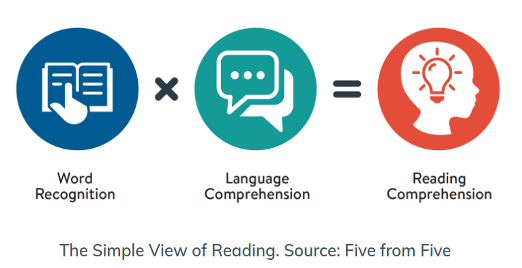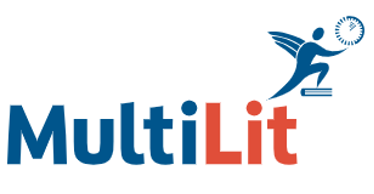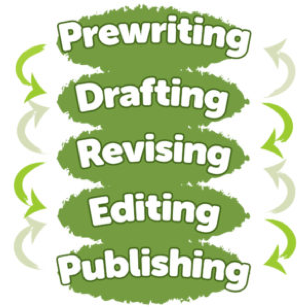Literacy Learning at Essendon
Primary School
"National and international evidence makes
it clear that a systematic synthetic phonics approach is the
most effective method teachers can use to help young primary
school students develop essential early reading skills." -
Ben Carroll, Minister for Education, 19 Oct 2024
Essendon Primary School has adopted a comprehensive approach to reading and spelling by implementing the evidence-based Response-to-Intervention (RTI) suite from Macquarie University, known as MultiLit (Making Up for Lost Time in Literacy). At EPS, students engage in at least 10 hours of literacy instruction per week, recognizing the critical role that literacy skills play in supporting all areas of learning.

MultiLit Programs

MultiLit offers a comprehensive suite of complementary programs that align with the new Australian curriculum, based on the science of how children learn to read. This involves three levels of explicit, direct instruction in systematic synthetic phonics:
Tier One:
Tier Two:
Tier Three:
P-2: InitialLit Program (Tier 1)
All students participate in the InitialLit program, an evidence-based whole-class literacy program designed to provide essential core knowledge and strong foundations for becoming successful readers and writers. This three-year program covers the first three years of school (Foundation to Year 2).
During literacy lessons, students are systematically and explicitly taught phonics in a structured sequence. In addition to learning letter-sound correspondences and their applications in reading and spelling, children are introduced to common morphemes and simple grammatical concepts. They also develop their fluency, vocabulary, oral language, and listening comprehension through quality children's literature.
3-6: SpellEx Program (Tier 1)
SpellEx provides a language-based, explicit approach to spelling instruction. It centres around a whole-class lesson, followed by additional opportunities for consolidation. The interaction between phonology, orthography, and morphology underpins the approach, giving students a deeper understanding of the English spelling system.
During literacy lessons, students receive instruction in grapheme choices, useful rules and conventions, morphology, and key spelling terminology.
Intervention Programs (Tier 2 and 3 Programs)
MiniLit (Foundation-2):
MiniLit is an evidence-based, explicit early literacy intervention program aimed at teaching reading skills to children in the bottom 25% of the expected range for their age group. At EPS, MiniLit is conducted as a Tier 2 small group program and on a one-to-one basis when needed.
MacqLit (3-6):
MacqLit is an explicit and systematic reading intervention program for small groups of older low-progress readers. A Literacy Support teacher guides students through a comprehensive sequence of lessons that cover all key components of effective reading instruction: phonemic awareness, phonics, fluency, vocabulary, and comprehension. Like MiniLit, MacqLit is offered as a Tier 2 small group program and on a one-to-one basis as needed.
For more information about the MultiLit programs, please click on the link: MultiLit.
Other Components of Literacy Learning at EPS
Reading:
Writing:

Speaking & Listening:
Individual Learning Plans
We recognize that every student is unique, with individual strengths, challenges, and rates of development. Individual learning plans and targets are developed collaboratively with teachers, students, and parents. When necessary, targeted short-term literacy support is organised on a needs basis, provided by our Literacy Support teacher.
Essendon Primary School has adopted a comprehensive approach to reading and spelling by implementing the evidence-based Response-to-Intervention (RTI) suite from Macquarie University, known as MultiLit (Making Up for Lost Time in Literacy). At EPS, students engage in at least 10 hours of literacy instruction per week, recognizing the critical role that literacy skills play in supporting all areas of learning.

MultiLit Programs

MultiLit offers a comprehensive suite of complementary programs that align with the new Australian curriculum, based on the science of how children learn to read. This involves three levels of explicit, direct instruction in systematic synthetic phonics:
Tier One:
* InitialLit: Whole-class instruction for students in Foundation to Year Two
* SpellEx: Whole-class spelling instruction for Year Three to Year Six students
Tier Two:
* MiniLit: Small group intervention for students in Foundation to Year Two
* MacqLit: Small group intervention for students in Year Three to Year Six
Tier Three:
* MacqLit: One-on-one intervention for students with a Specific Learning Difficulties impacting their progress, typically targeted at students in Year Three to Year Six.
P-2: InitialLit Program (Tier 1)
All students participate in the InitialLit program, an evidence-based whole-class literacy program designed to provide essential core knowledge and strong foundations for becoming successful readers and writers. This three-year program covers the first three years of school (Foundation to Year 2).
During literacy lessons, students are systematically and explicitly taught phonics in a structured sequence. In addition to learning letter-sound correspondences and their applications in reading and spelling, children are introduced to common morphemes and simple grammatical concepts. They also develop their fluency, vocabulary, oral language, and listening comprehension through quality children's literature.
"Explicit teaching of alphabetic decoding skills is helpful for all children, harmful for none, and crucial for some." - C. Snow and C. Juel, 2005, Harvard Graduate School of Education.
3-6: SpellEx Program (Tier 1)
SpellEx provides a language-based, explicit approach to spelling instruction. It centres around a whole-class lesson, followed by additional opportunities for consolidation. The interaction between phonology, orthography, and morphology underpins the approach, giving students a deeper understanding of the English spelling system.
During literacy lessons, students receive instruction in grapheme choices, useful rules and conventions, morphology, and key spelling terminology.
Intervention Programs (Tier 2 and 3 Programs)
MiniLit (Foundation-2):
MiniLit is an evidence-based, explicit early literacy intervention program aimed at teaching reading skills to children in the bottom 25% of the expected range for their age group. At EPS, MiniLit is conducted as a Tier 2 small group program and on a one-to-one basis when needed.
MacqLit (3-6):
MacqLit is an explicit and systematic reading intervention program for small groups of older low-progress readers. A Literacy Support teacher guides students through a comprehensive sequence of lessons that cover all key components of effective reading instruction: phonemic awareness, phonics, fluency, vocabulary, and comprehension. Like MiniLit, MacqLit is offered as a Tier 2 small group program and on a one-to-one basis as needed.
For more information about the MultiLit programs, please click on the link: MultiLit.
Other Components of Literacy Learning at EPS
Reading:
* Interactive Read Aloud: Teachers model correct reading strategies and behaviours.
* Guided Reading/Literature Circles: Teachers work with groups of students with similar needs.
* Shared Reading: Students and the teacher read together to develop a deeper understanding of reading needs.
* Independent Reading: Students practise applying new reading strategies and skills.
* Reading Conferences: Regular one-on-one discussions between the teacher and individual students to monitor progress and text selection.
* Novel Study (3-6): In-depth discussions on high-quality texts focusing on comprehension, vocabulary, and writing
Writing:
* Modelled or Shared Writing: Teachers demonstrate and explicitly teach text types, structures, and vocabulary, allowing students to develop and practise their skills.
* The Writing Process: Students work through the writing process to publish and share their work.

Speaking & Listening:
* Expressive and oral language development is embedded throughout all areas of literacy.
Individual Learning Plans
We recognize that every student is unique, with individual strengths, challenges, and rates of development. Individual learning plans and targets are developed collaboratively with teachers, students, and parents. When necessary, targeted short-term literacy support is organised on a needs basis, provided by our Literacy Support teacher.















